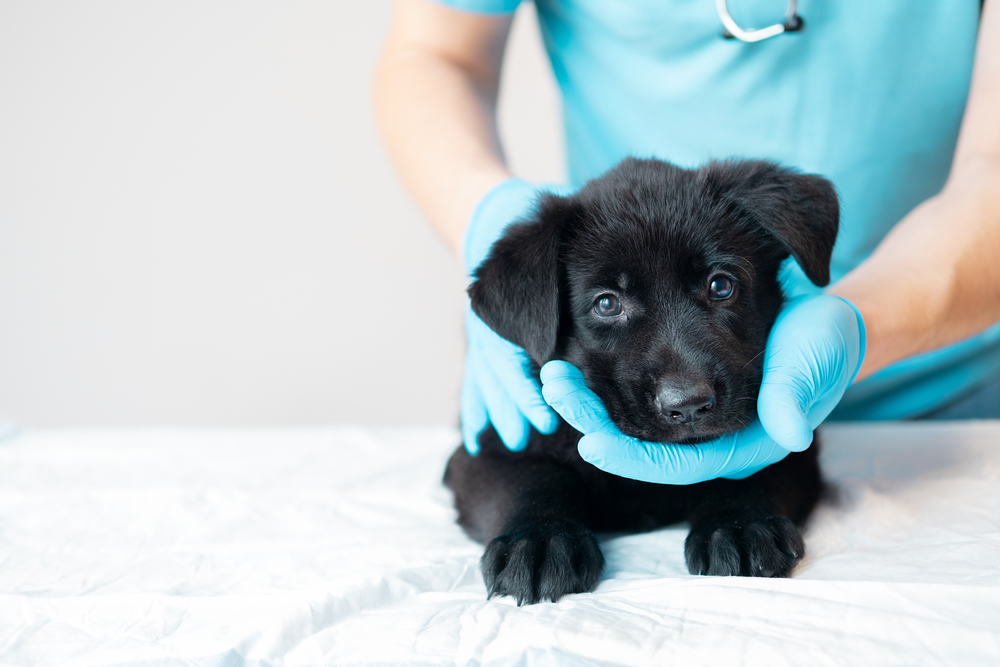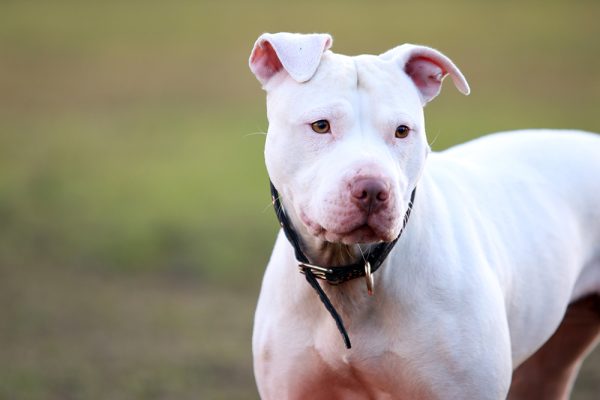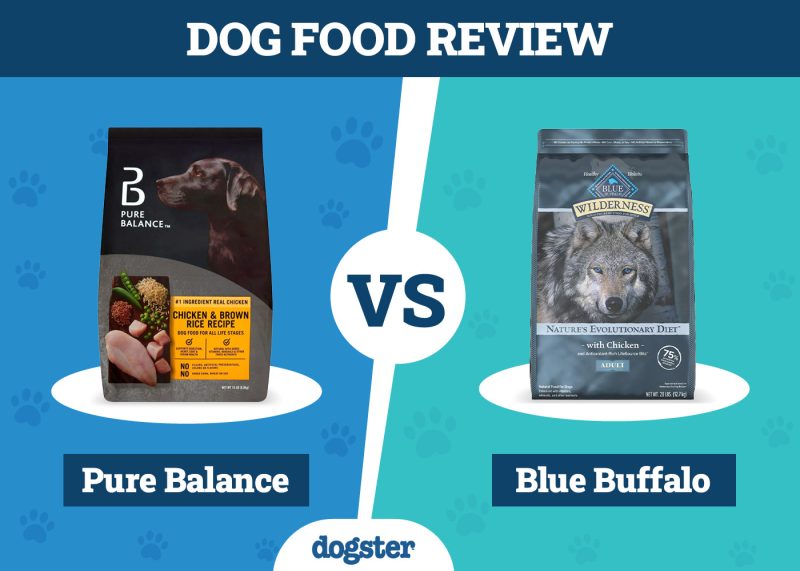In this article
While diabetes may seem like a common middle-aged to senior dog problem, it can happen at any age, including puppyhood. That said, diabetes is far more likely to be diagnosed in dogs over 7 years of age.
If you’re at all concerned that your puppy may have diabetes, talk to your veterinarian, as this disease is best managed when caught early. Read on for more details about diabetes in general and what it may look like in your puppy.

What Is Diabetes in Puppies?
Diabetes mellitus is a disease that affects the pancreas, the all-important little bundle that sits just below the stomach. The pancreas divides its energy between producing digestive enzymes and the hormone insulin that is responsible for moving glucose (sugar) out of the blood and into cells where it can be used for energy.
In most dogs with diabetes, the pancreas decreases its production of insulin, enabling blood glucose levels to rise in the bloodstream. Eventually, excess glucose can spill over into the urine, drawing water with it. The bigger issue here, though, is that glucose doesn’t get pushed into cells, and if severe enough, those cells can starve, creating all kinds of problems.

How Do I Know If My Puppy Has Diabetes?
Typically, the first thing that owners see in dogs with diabetes is increased urination. High blood glucose levels can dump glucose into the urine, bringing water with it and thus increasing the amount of urine that a dog has, making them need to pee more often. To make up for all the water going into the urine, the dog will also start draining their water bowl more often.
Along with increased drinking and peeing, you may also see weight loss and an increased appetite, which can be hard to determine in an ever-hungry puppy.
If you suspect your pet is suffering from diabetes, you should contact your vet directly for an assessment. They can provide you with more information and a care plan.
If you need to speak with a vet but can't get to one, head over to PangoVet. It's our online service where you can talk to a vet online and get the advice you need for your pet — all at an affordable price!

How Is Diabetes in Puppies Treated?
To help the pancreas, dogs with diabetes are typically given insulin. This way, their body can function relatively normally, and their cells can get what they need in terms of glucose. Insulin is given as an injection twice a day, following a meal. The timing is important here, as you’ll want to feed your pup and give them the insulin at the same times every day. Continuous monitoring is required to ensure that you have your pup on an appropriate dose and that their blood sugar levels are kept in check.
Along with insulin administration, dogs are usually put on a special diet that is low in carbohydrates to help prevent major spikes in blood sugar.
If your dog is showing any of these signs and you are seeking the best possible treatment for your pup, we recommend speaking with a vet.
Can a Puppy Be Born With Diabetes?
Diabetes is typically a disease that develops in the middle to later ages, as it often coincides with being overweight, having a history of pancreatitis, or contracting other concurrent diseases. That said, there is sometimes a genetic factor by which dogs get diabetes. So, while very rare, puppies can be born with an issue of the pancreas that can lead to diabetes.
In these cases, you may start to notice a few of the mentioned signs, though this can be difficult to do, since most puppies can be erratic in their appetite and drinking behaviors. Knowing your puppy will help you detect slight changes, though, and don’t be afraid to contact your vet if you have even the smallest concern.
What Can Be Mistaken for Diabetes in Puppies?
It can be easy to mistake multiple other issues with diabetes. With a list of common signs that include increased drinking, peeing, and eating, anything affecting the liver, kidneys, or urinary system may be to blame. Puppies are no stranger to urinary tract infections, which can cause frequent urination and potentially increased thirst. Kidney infections can do the same. Your veterinarian will be able to rule out other issues by performing a thorough exam and bloodwork.
Diabetes is often diagnosed by the vet seeing high blood glucose, among other things. However, keep in mind that blood glucose can also be slightly elevated due to stress, infection, and inflammation, so one slightly elevated reading shouldn’t constitute a diabetes diagnosis in your puppy.
Your vet will likely perform other tests, including a urinalysis to check for glucose in the urine.

How Long Can a Puppy Live With Diabetes?
Diabetes may be a scary diagnosis for a puppy to receive, but the good news is that it can often be successfully managed. Proper treatment with diet and insulin are lifelong changes that you and your puppy will have to deal with, along with regular veterinary visits.
Fortunately, giving insulin injections becomes a routine part of the day for many dog owners and dogs alike, with both parties quickly becoming comfortable with it. Careful monitoring of your pup for signs of illnesses also becomes routine. With proper management, most diabetic dogs live relatively normal and long lives.

Conclusion
Diabetes may be a fairly common issue in dogs, but it’s not typically found in puppies. Most of the time, dogs are over 7 years old when they receive the diagnosis, but that doesn’t mean it can’t happen sooner, even in dogs under 1 year of age.
The treatment for diabetes, no matter the age of the dog, will be the same, often consisting of insulin therapy, a diet change, and frequent monitoring. Whether your puppy or senior dog is diabetic, they can live a healthy, happy life with proper management.
Featured Image Credit: Gladskikh Tatiana, Shutterstock

















